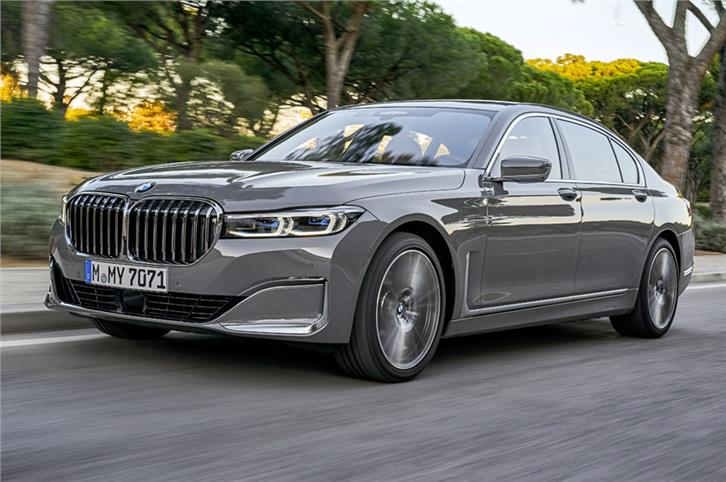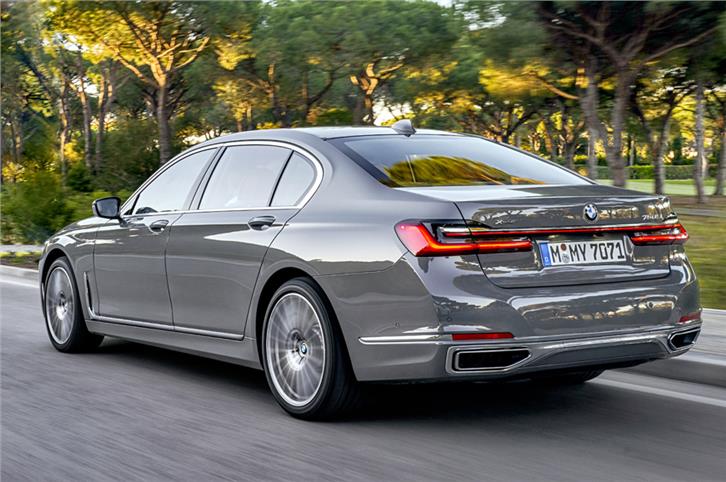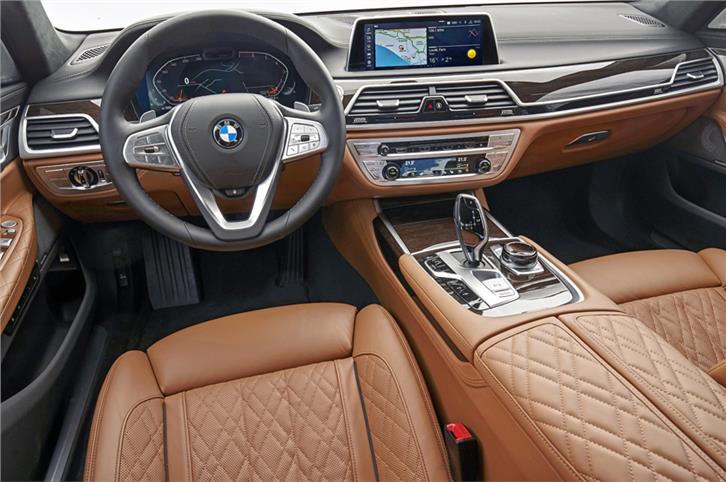BMW’s flagship sedan gets a mid-life refresh, but how much has actually improved? We test drive the 750Li xDrive.
Published on Apr 03, 2019 04:31:00 AM
47,668 Views
Follow us on


A mid-cycle refresh for BMW's current flagship sedan, the BMW 7 Series will come to India later this year. Besides design tweaks to the exterior and changes in the cabin, BMW claims they've also made the new 7 Series more comfortable, more silent and more refined. The Bavarian company says the car now rides better, drives more like a BMW and, in 750Li xDrive form, has a more powerful 530hp engine under the hood. However, the question arises: is it much better than the earlier car? Has BMW moved the goalposts forward significantly?
First things first – that huge grille. It is even bigger than the one on the X7 and it initially comes as a shock when you see it. However, the more you look at it, the less oversized and out of place it looks. BMW all but admits this has been done to please Chinese buyers who, at 41 percent, are currently the biggest buyers of the sedan. The 7 Series even gets cool-looking narrow headlight enclosures and a wide ‘smile’-like intake in the front bumper. I also love how those 'air blades' channel air around the front wheels. And look at the car from the side and you’ll notice that it has a flat bonnet. The nose is now 50mm higher at the front compared to the earlier car. While I like the interlinked tail-lights, the chrome used in and around the exhausts looks a bit unnecessary and excessive.
The changes to the cabin, especially at the front, aren’t all that dramatic. There's a new steering wheel with buttons reconfigured for autonomous driving, new wooden and lacquered trim on the dashboard and BMW's new iDrive 7.0 operating system for the infotainment system. The design and layout on the latter are quite different, but it is more intuitive to use. You can still customise the home screen and use BMW’s feather-touch shortcut keys. The seats have also been upgraded; they’re now finished in quilted leather, are better padded and more comfortable to sit in. In the rear section of the cabin, the control slate between the seats, with its super-cool locking mechanism, has been retained and so has the wooden centre console that runs all the way to the rear. However, the powered rear seats should have been set a bit lower as you feel like you are perched up on them.

Once on the move, you instantly notice that this car feels quieter and better insulated. There is less road noise, less wind noise and after just ten minutes in the cabin, it's clear that BMW has achieved its objective of making the 7 Series facelift more refined and comfortable. In fact, the insulation is so good, it feels like you are wearing earmuffs. This has been achieved by using double glazed glass on the front and rear windscreens (which was there on the previous model) and even - this time around on the windows.

Ride quality has also improved considerably. The 7 Series has two settings – Comfort and Comfort Plus, both of which have been tuned to provide an even plusher ride. In 'Comfort Plus', you can feel the car glide over the bigger ruts and bumps without too much noise or deflection. It does feel a bit floaty when you up the speed, but switch the air suspension to the slightly firmer 'Comfort' setting and that extra firmness feels just right.
BMW hasn't just made the 7 Series more comfortable, it's even sharper to drive now. The steering is more direct to begin with and there's more 'real' road feel. Also, the way this 5.26m-long car just darts into corners feels just unreal. On some of the tighter corners, you do feel the weight of the car, especially at the back, and that can’t be helped. However, there’s no feeling of looseness and the mass doesn't really get flung around, which is pretty amazing considering the size and weight.
What helps keeps all that mass in check are three smart systems: air-suspension, active anti-roll bars and rear wheel steering. BMW has done particularly well to get all three to 'talk' to each other and work in unison.
This xDrive four-wheel-drive chassis handles a huge amount of power with ease. This 750Li still uses a twin-turbo V8, one with the twin-scroll turbos packed in the 'V', but power is now up to 530hp. There's 80hp more in the top end, there's more thrust at low speeds and when you put your foot down in Sport mode, the sedan just goes. It's so quick, 0-100kph now comes up in a claimed 4.1sec. Keep your right foot pinned and this piece of large real estate has the ability to out-drag a few bonafide sportscars.

The truly incredible bit is that after a while behind the wheel, you tend to forget all the mass and just enjoy the performance, the grip and the chassis' incredible agility. You can carry a fair amount of speed into corners, get on the brakes late, and then get on the throttle nice and early, using the thrust of that V8 to slingshot you out of corners. One thing is for sure here – no other luxury car in this class drives as well.
All things considered, BMW has nailed facelift; it has achieved almost everything it set out to do. Yes, the rear seat could have been more comfortable, but the 7 is now more dramatic looking on the outside, quieter on the inside, it rides better, has more grunt, and BMW has even managed to do the near impossible – make it drive like a car half its weight. All in all, irrespective of whether you like to drive or be driven around in your luxury car, if you have an estimated Rs 1.5 crore jangling in your pocket, you'll have a lot to look forward to around Diwali.
Copyright (c) Autocar India. All rights reserved.

Maruti Suzuki plans to use the Boosterjet engine in more models. Which one would you like to see it in?
Comments
Member Login
Personal Details
No comments yet. Be the first to comment.